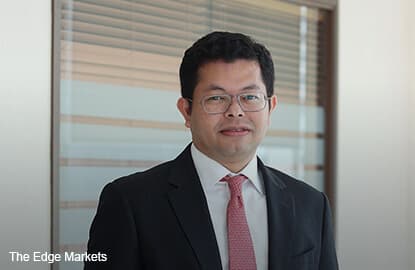
The local Islamic asset management industry has grown steadily in the past two years amid the global volatility. The total number of the funds (including unit trust and wholesale funds) has increased 18% to 295 while assets under management has grown 34% to RM132.38 million, according to the Securities Commission Malaysia.
Shariah-compliant funds in general are said to be more appealing to investors with a lower risk appetite and who expect less volatility and stable returns. This is because the shariah screening process helps to filter out the more volatile stocks.
“Shariah-compliant stocks are generally selected through a stringent process that takes into account the financial standings of the companies. Thus, they are viewed as more defensive. The weightage in the shariah indices globally are skewed towards telcos, utilities and plantations — sectors that are considered to be more defensive,” says Akmal Hassan, managing director of Asian Islamic Investment Management Sdn Bhd.
The FTSE Bursa Malaysia Hijrah Shariah Index’s one-year volatility stood at 10.16 on Nov 10, according to Bloomberg. This means it was less volatile than the FBM KLCI at 10.69.
Datin Seri Norashikin Mohd Kassim, CEO of CIMB-Principal Islamic Asset Management, says global sukuk has also experienced less volatility than global bonds. “Global sukuk may provide greater stability and lower volatility. The annualised volatility of global sukuk was 1.78% as at Dec 31 last year while that of global bonds was 3.31%.”
Islamic investments have performed better than their conventional counterparts in the recent bear markets. In the past two years, when global markets experienced slow growth and high volatility (caused by events such as the fall in commodity prices, devaluation of the renminbi and fallout from the Brexit referendum), Islamic indices have fared better than their conventional peers. For instance, while the Hijrah Shariah Index fell 7.2% over a two-year period as at
Nov 10, the FBM KLCI declined 9.07%. Similarly, the FBM Emas Index dropped 7.07%, but the FBM Emas Shariah Index was down 8.27%.
According to the Lipper Fund Tables, funds in the Equity Malaysia (Islamic) category generated an average return of 0.6%, 4.99% and 34.75% over one, three and five years respectively as at Nov 7 while its conventional peers had an average return of 3.16%, 6.55% and 37.76% over the same periods.
Funds in the Bond Malaysian Ringgit (Islamic) category saw an average return of 5.98%, 13.45% and 23.8% over one, three and five years respectively while its conventional peers had an average return of 5.66%, 13.7% and 22.71%.
The BIMB-Arabesque i Global Dividend Fund 1, which invests in global equities and was launched at the end of last year, has done well so far. It generated a return of 8.78% for the six months ended Nov 7, making it the best performing fund in the Equity Global (Islamic) category. It was the 11th best fund (out of 25) in the overall Equity Global category.
BIMB Investment CEO Najmuddin Mohd Lufti (picture) says while the defensive nature of shariah-compliant funds may appeal to investors with a lower risk appetite, their performance needs to be better than that of their conventional peers. That is because investors ultimately look at the returns generated by the funds and only a small portion of them invest in shariah-compliant funds because of religious purposes, he points out. — By Kuek Ser Kwang Zhe
Save by subscribing to us for your print and/or digital copy.
P/S: The Edge is also available on Apple's AppStore and Androids' Google Play.